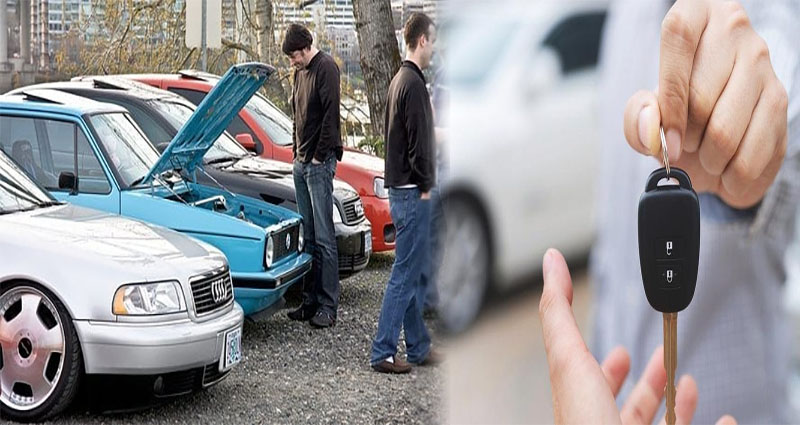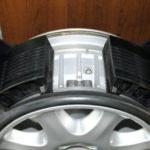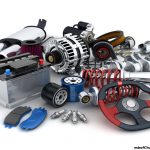It’s no secret that buying a car is an expensive endeavor. The average new car costs more than $34,000, while used cars are often just as pricey due to the high demand. However, it’s possible to find cheap cars if you’re willing to put some work into your search. In this guide we’ll discuss how to find a good deal on any budget, from compact sedans all the way up to SUVs and trucks!
Decide what you want in a car.
Before you start shopping for a used car, it’s important that you know what kind of vehicle will best suit your needs. If you’re only going to be driving around town and need something small, then buying an SUV might not be the best choice. Likewise, if your commute involves highway miles every day and gas prices are skyrocketing (as they have been recently), then a fuel-efficient hybrid may make more sense than a gas guzzler with poor mileage.
A good rule of thumb is to decide on one basic type of vehicle before looking at specific models within that grouping–such as “I want an SUV” or “I want an economy car.” Once this decision has been made, go ahead and do some research into different makes and models within those categories so that when it comes time for shopping there aren’t any surprises waiting for us in terms of price tags or features offered by each model we consider buying
Consider your budget.
- Be realistic about your budget.
- Don’t overspend.
- Don’t go into debt.
This is a common mistake for people who are buying their first car, but it’s also something that can happen to anybody at any time in life–you get excited about a new purchase and forget how much money you have to spend on it! So before you start looking at new cars, figure out what kind of monthly payment would be comfortable for you and stick with that number when shopping around (even if some dealers try to get away with charging more). You might need some help from family members or friends who have been through this process before; they might be able to give advice based on their own experiences buying cars under similar circumstances as yours.* Don’t buy too much car than what’s necessary for your needs.* This isn’t just good advice because it’ll save money; there are other reasons why buying too much vehicle could end up costing even more: For example, if the insurance company finds out that they’re covering too much coverage on one vehicle while another vehicle sits unused in storage because its owner couldn’t afford both payments at once then they may increase premiums across-the-board instead of just on one policy; because this could lead directly back into our previous point about monthly payments being too high then we’re back where we started –and worse off than ever!
Do your research.
If you want to buy a car that is cheap and reliable, you should do your research. You’ll need to know what to look for in a car, how to find a car that is cheap and reliable and how to tell if a car is cheap or reliable. If this sounds like too much work for you, then perhaps buying an expensive new car would be better suited to your lifestyle!
If you’re still interested in finding something affordable but still useful then here are some tips on how best go about it:
- Research all available options before making any purchases (or even thinking about purchasing). This way there won’t be any surprises later down the road when it comes time for maintenance or repairs – which could end up costing more than originally anticipated due out-of-pocket expenses incurred during these processes.* Consider whether or not financing might work better than paying cash upfront because interest rates vary widely depending upon location as well as other factors such as credit score history so only enter into agreements with reputable lenders who offer fair terms.* Check sites like Edmunds or Kelley Blue Book regularly so see where prices stand relative overall trends over time.”
Go to lots of dealerships.
You need to go to lots of dealerships. You do not want to go once and then settle on the first deal you get. You should keep looking around until you find a price that works for your budget, or at least comes close enough that it makes sense for you not to haggle any further.
You can also try negotiating with individual salespeople at each dealership rather than just one manager, because sometimes managers will have their hands tied by their company’s policy on pricing (which may be more expensive than what an individual salesperson would offer).
Keep an eye out for good deals.
When you see a car that’s been in an accident, or flooded, or repossessed and salvaged–these are all good deals because the owner has already taken a loss on the vehicle. You can get some great deals if you keep your eyes open for them!
Try to negotiate.
Negotiating a price is always a good idea. You should be able to get a better deal if you are willing to haggle with the dealer, but don’t forget that there is such thing as too low of a price. If your offer is much lower than what they might expect from someone else, it will most likely be rejected outright. It’s also important not to go too high either; if this happens then it may seem like desperation on your part and could cause them not want sell their car at all!
When negotiating with dealerships over cars and other vehicles, keep these tips in mind:
- Know your budget before walking into any dealership or shop where cars are sold (and stick within this amount). This way there won’t be any surprises later down the road when something unexpected comes up during negotiations – like an extra fee here or there which throws everything off balance again!
Buying a cheap car is possible, but it takes time and effort
Buying a cheap car is possible, but it takes time and effort. You need to know what you want, and be willing to compromise. You need to do your research and go to lots of dealerships (at least 10). And most importantly, you need to keep an eye out for good deals!
The first step in buying any vehicle is finding the right one for your needs–and this doesn’t just mean finding something that gets good gas mileage or has all-wheel drive capabilities; it also means making sure the car fits into your budget as well. This can take some trial-and-error: if one model isn’t working out for whatever reason (e.g., too expensive), try another one until something sticks!
Buying a cheap car is possible, but it takes time and effort. You have to know what you want in a vehicle, have an idea of what your budget will allow for and then go out there and find some good deals on vehicles that fit that description. If you’re willing to put in the work though, then there’s no reason why anyone couldn’t find themselves behind the wheel of an affordable vehicle!











